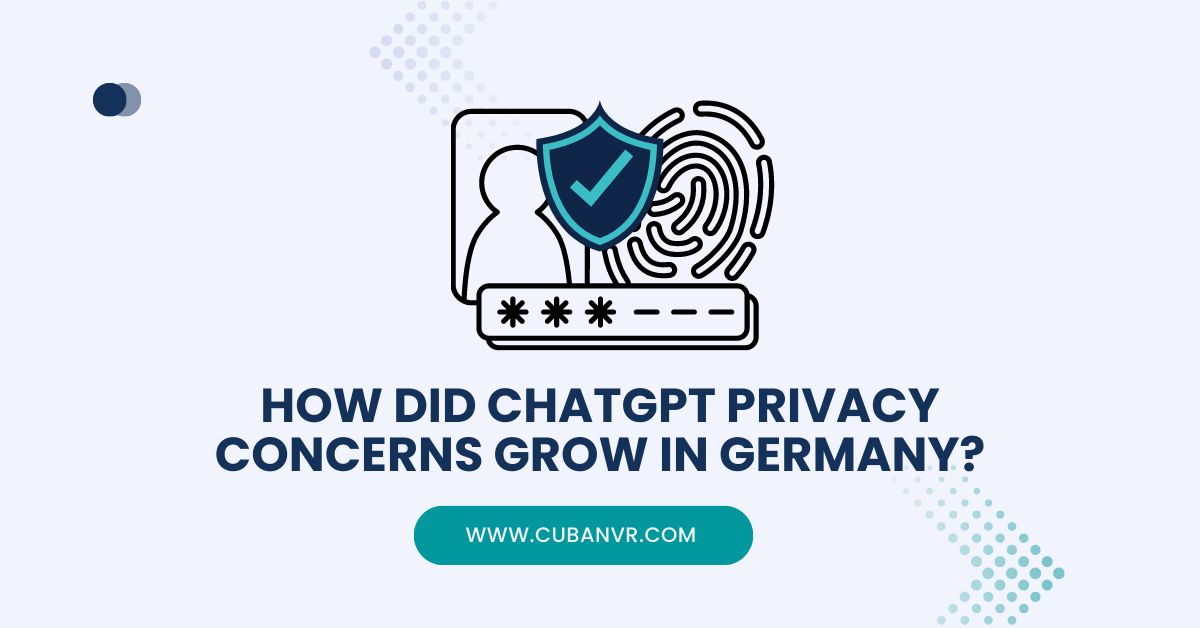Is ChatGPT blocked in Germany?
Privacy concerns related to ChatGPT, an AI chatbot developed by OpenAI, are escalating in Germany. Ulrich Kelber, the German commissioner for data protection, has voiced apprehensions and revealed communication between German and Italian regulators following Italy’s recent ban on the chatbot. Germany now joins other European nations in closely scrutinizing ChatGPT’s use of personal data and demanding accountability from OpenAI.
ChatGPT Privacy Concerns And Data Protection
Issues surrounding ChatGPT primarily revolve around data protection and security. The advanced technology used by the chatbot has raised worries about misinformation, cybercrime, fraud, and academic cheating. Italy’s ban is just the start of ChatGPT’s challenges, as it faces potential privacy cases across the European Union. The German data protection commissioner has cautioned that ChatGPT’s handling of personal data might breach EU data protection regulations. Additionally, concerns arise from the lack of transparency in how ChatGPT’s developers process user data.
Emergence In Germany
ChatGPT, an AI-powered chatbot gaining popularity globally, has also made its mark in Germany. However, this emergence has sparked concerns about data privacy and personal information security. Germany, alongside other European countries, is delving into ChatGPT’s use of personal data and demanding clarifications from OpenAI. Ulrich Kelber, Germany’s data protection chief, suggests that the country might follow Italy’s lead and ban the AI chatbot due to privacy concerns.
Initial Privacy Concerns And Regulatory Action
In early 2023, Germany’s apprehensions about ChatGPT’s privacy implications began to intensify. The chatbot’s increasing popularity led to the German commissioner for data protection, Ulrich Kelber, expressing concerns and initiating communication with Italian regulators following Italy’s ban. This sentiment was echoed by experts who saw AI chatbots like ChatGPT as potential threats to consumer data privacy. Consequently, Germany launched a data protection inquiry into ChatGPT’s practices, aiming to investigate its data collection, storage, and compliance with European data protection laws.
Governmental Response And Industry Impact
Germany is actively addressing ChatGPT’s privacy concerns, with Ulrich Kelber hinting at the possibility of a ban. Authors and performers in Germany are calling for stricter regulations on generative AI due to unauthorized usage and potential misuse of personal data. European data authorities are also investigating ChatGPT’s privacy risks, with Italy officially blocking the chatbot for potential violations of EU data protection rules. The incident underscores the need for transparent AI development and strong data protection measures.
Public Perception and Future Implications
The German public’s response to ChatGPT’s privacy concerns has been cautious. Many individuals worry about data handling and storage by AI, sparking discussions on personal data safety and regulatory enforcement. As Germany initiates a data protection inquiry, the pressure is mounting for global lawmakers to act to safeguard consumer data privacy. Despite concerns, some acknowledge ChatGPT’s value while advocating for proper data protection measures.
Comparative Analysis and Future Predictions
Germany’s privacy concerns are not unique, as other European countries like Italy, France, and the Netherlands are also scrutinizing ChatGPT’s data practices. The broader European effort to harmonize policies and address AI privacy concerns underscores the importance of transparency and fairness. The future implications of ChatGPT’s use remain uncertain, with potential benefits and risks needing further exploration.
FAQs
What is the impact of privacy issues on ChatGPT’s usage in Europe?
The emergence of privacy concerns around ChatGPT has significantly influenced its utilization across Europe. These privacy apprehensions have prompted calls for heightened regulation and more thorough scrutiny of AI chatbots and similar technological innovations. Notably, some nations, such as Italy, have taken decisive actions by outright banning the use of ChatGPT due to deep-seated worries about privacy and the security of personal data.
What are the steps taken to address ChatGPT’s privacy concerns?
As the worries about ChatGPT’s privacy implications have grown, regulatory bodies in European countries, including Germany, have taken proactive measures. These measures include initiating data protection inquiries and demanding explanations from the creator of the technology, OpenAI, which is based in the United States. Simultaneously, there’s a widespread call for an enhanced regulatory framework and vigilant oversight to ensure that AI chatbots and similar technologies prioritize safeguarding user privacy.
What are the country-wise actions regarding ChatGPT’s privacy?
Italy, in a recent move, instituted a ban on the use of ChatGPT due to pronounced concerns about privacy and the security of personal information. It’s crucial to note, however, that not all nations have adopted such extreme measures. Instead, many countries are engaged in ongoing investigations to thoroughly assess the potential risks and advantages associated with the deployment of this technology.
What are the potential privacy risks associated with ChatGPT?
Engaging with ChatGPT carries inherent privacy risks. These risks encompass the potential mishandling of personal data, vulnerability to data breaches and cyber attacks, and the conceivable exploitation of the technology for malicious intents. Additionally, the opacity and lack of accountability in the development and utilization of AI chatbots and comparable technologies amplify these concerns.
Are there protective measures for Individuals using ChatGPT?
For individuals using ChatGPT, a range of precautionary measures can be taken to preserve their privacy. These measures include judiciously considering the information shared with the technology, implementing robust and distinct passwords, and consistently monitoring online accounts for any anomalous activities. Furthermore, staying informed about the potential benefits and risks associated with AI chatbots and similar technologies is pivotal, and advocating for stricter regulations and increased oversight remains essential to ensure the safeguarding of user privacy.
See also: How To Use ChatGPT In Italy With Or Without VPN
Conclusion
The privacy apprehensions stirred by ChatGPT have cast a substantial shadow over Germany. A study executed by University of Hamburg researchers has underscored the magnitude of this concern, labeling ChatGPT as a harbinger of data privacy issues. Notably, OpenAI’s procurement of internet-scraped data without compensation to its originators—individuals, website proprietors, and companies—is in stark contradiction to Germany’s stringent data protection regulations, thereby amplifying the cause for concern.
